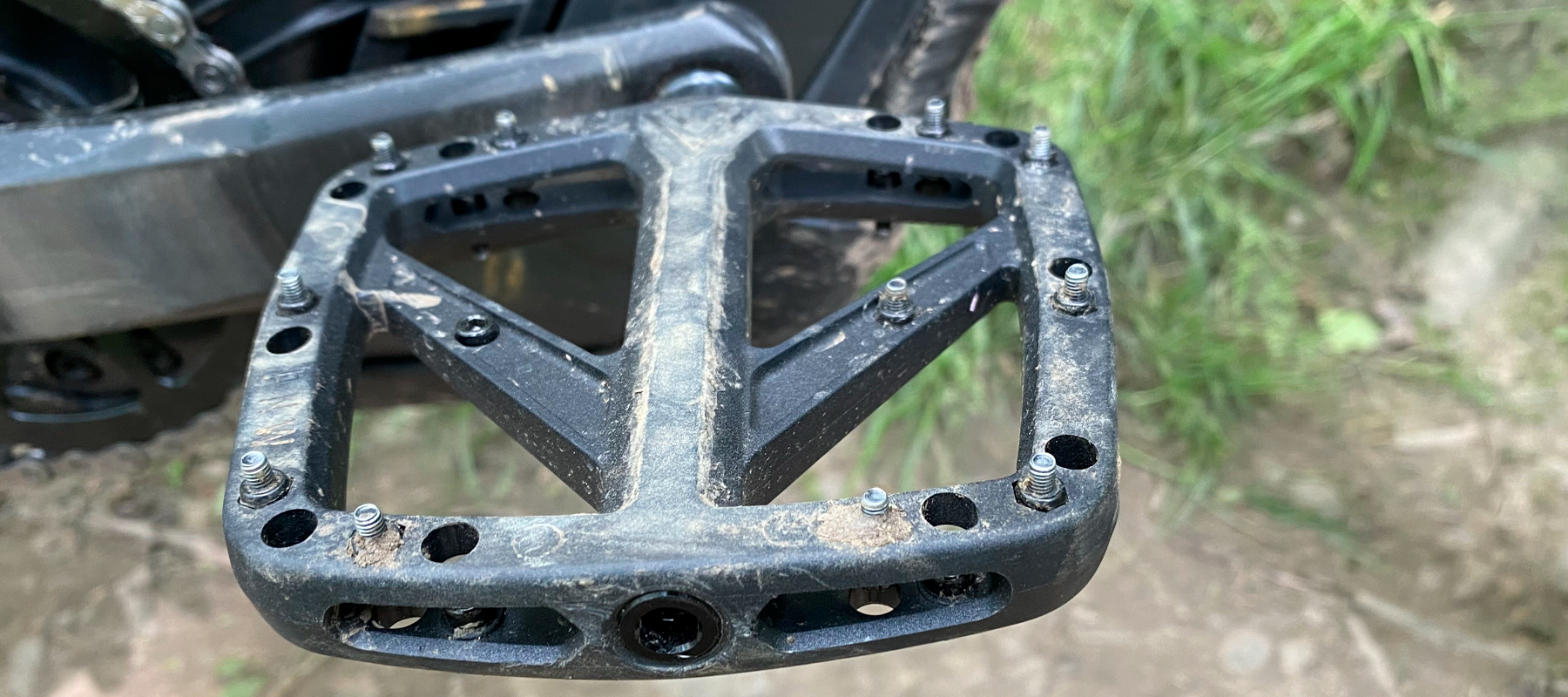Bike Perfect Verdict
Decent value, large platform pedals in tons of colors, but a convex profile means they're not as grippy as they could be and importing them doubles the price.
Pros
- +
Light
- +
Loads of color options
- +
Tough build
- +
Lifetime warranty
- +
Full spares back up
Cons
- -
Pricing depends on taxes and postage
- -
Convex profile reduces grip
- -
Fixed pin height
Why trust BikePerfect
PNW have built their reputation with some of the best dropper posts available and then grips and bars and now they’re moving onto pedals too. The new Range composite pedals are color coordinated with loads of platform room and decent bearings. Convex shape robs them of potential grip compared to the best platform pedals though and shipping/tax can be a hugely costly extra.
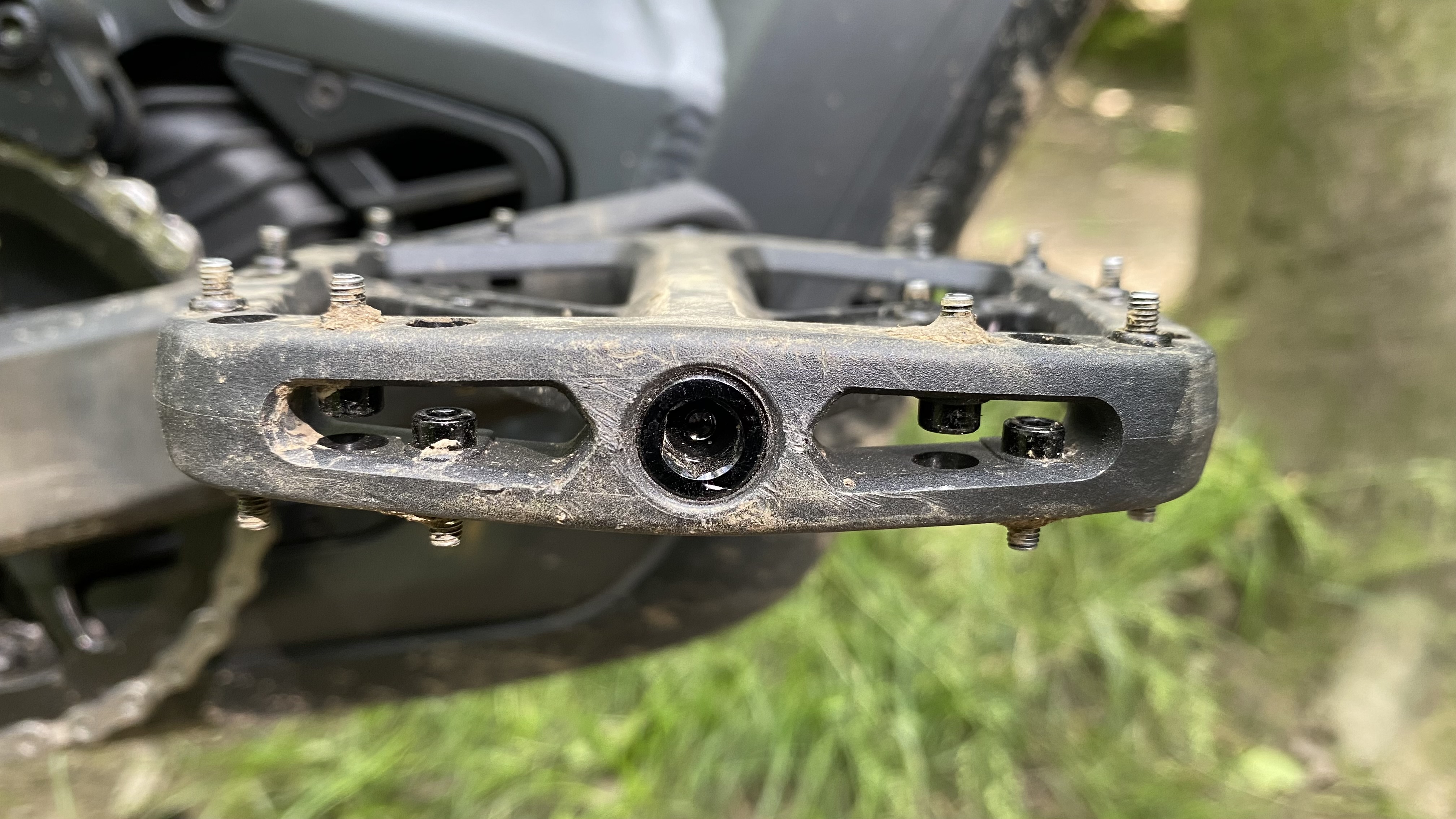
Design and specifications
Like most composite pedals the Ranges follow the lead of an alloy sibling. While they use the same basic shape as the alloy Loam, there are significant differences. The biggest (after the glass reinforced nylon material) is that they use a low volume bushing rather than a large sealed bearing on the inboard side. They still use ball and roller bearings for the outer end of the axle though. They also come in far more colors from dazzling primary to subdued grey and black, which unsurprisingly sync to their grip and dropper lever pad palette.
The slightly convex profile is the same though as is the 12-pin layout. The pins are fixed in place with replaceable nuts, but can’t be adjusted for height. A full range of spares is available from PNW’s online shop and they have a lifetime warranty for manufacturing defects too.
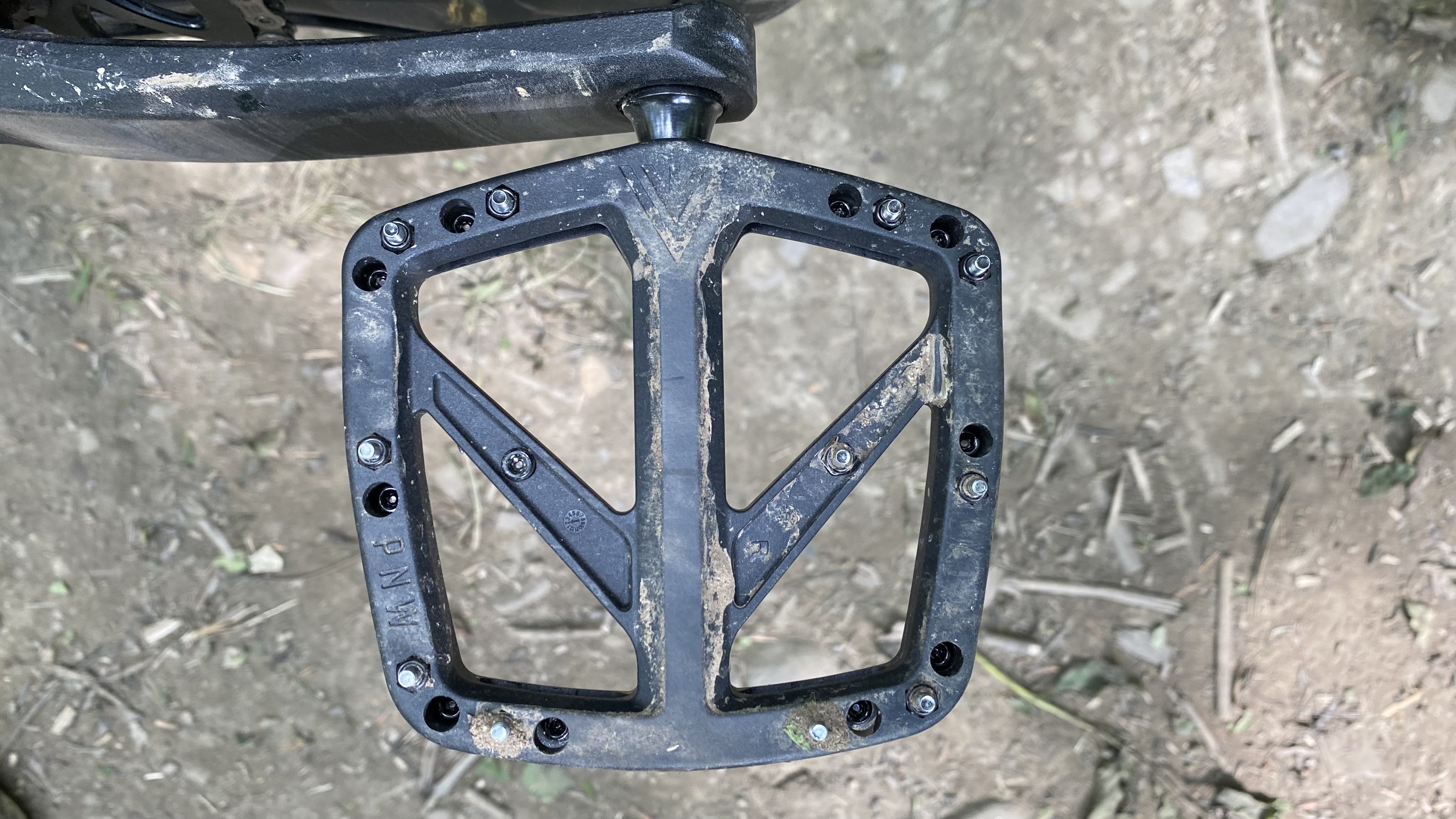
Performance
While pedal weight is rarely something you notice, the PNW’s are comparable with other composite options such as DMR’s V11. While I’ve not had chance to ride them right through winter, they still spin well with no trace of wobble or play. I’ve smacked them off rocks and stomped them into logs enough to prove they’re usefully tough though.
The lack of the inner bearing lump, that was an issue for some testers on the alloy pedals, means uncompromised real estate right up to the cranks. That works really well for riders who like to come on and off the pedals a lot through corners etc. or who just aren't that accurate getting their feet back on.
The convex rather than concave profile means feet tend to feel perched rather than cupped confidently into place though. The pins are non-adjustable too and the ones in the bracing struts are so low they barely contact your shoe so I presume they’re just handily placed spares.
The biggest issue with the Ranges though is that the price depends on where you buy them from. While the listed PNW website prices and those of local distributors/shops are reasonable (although more expensive than the benchmark Burgtec composites), adding shipping and relevant taxes more than doubles them in price when buying direct from PNW to the UK.
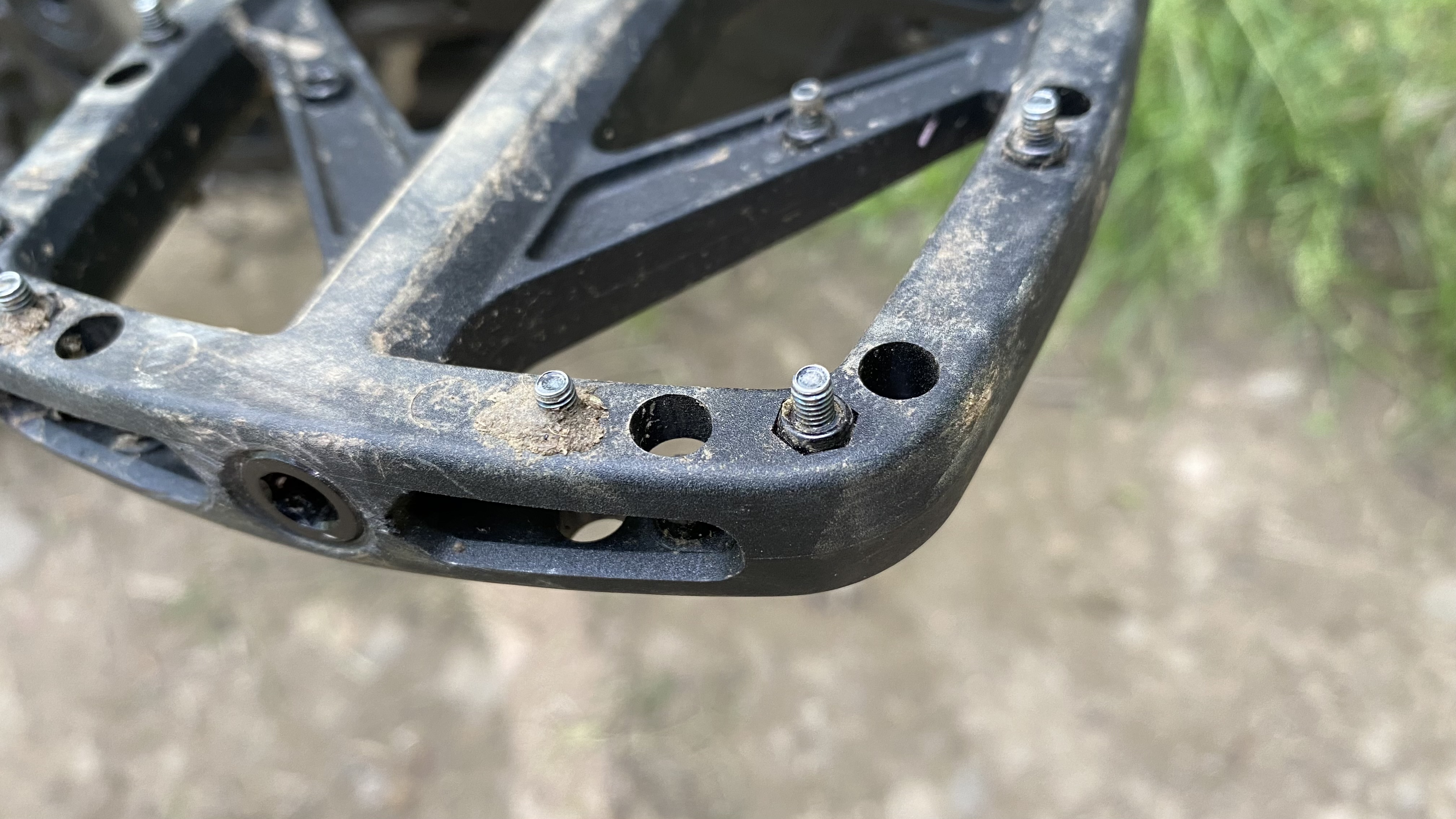
Verdict
PNW’s Range pedals aren’t the grippiest or most tune-able. They remove some of the gripes we had with their alloy pedals though and give plenty of platform in a wide range of colors. They’re proving tough so far and that’s what the decent score I’ve given them is based on. But their value rating depends on whether you can get them through a local source or have to buy direct from PNW which can be a deal breaker given the extra shipping costs.
Tech Specs: PNW Range composite pedals
- Price: $49 / £49 (plus shipping and taxes if buying direct from PNW)
- Colors: Black, Safety Orange, Red, Cement Gray, Teal, Fruit Snacks Purple, Blue
- Weight: 398g
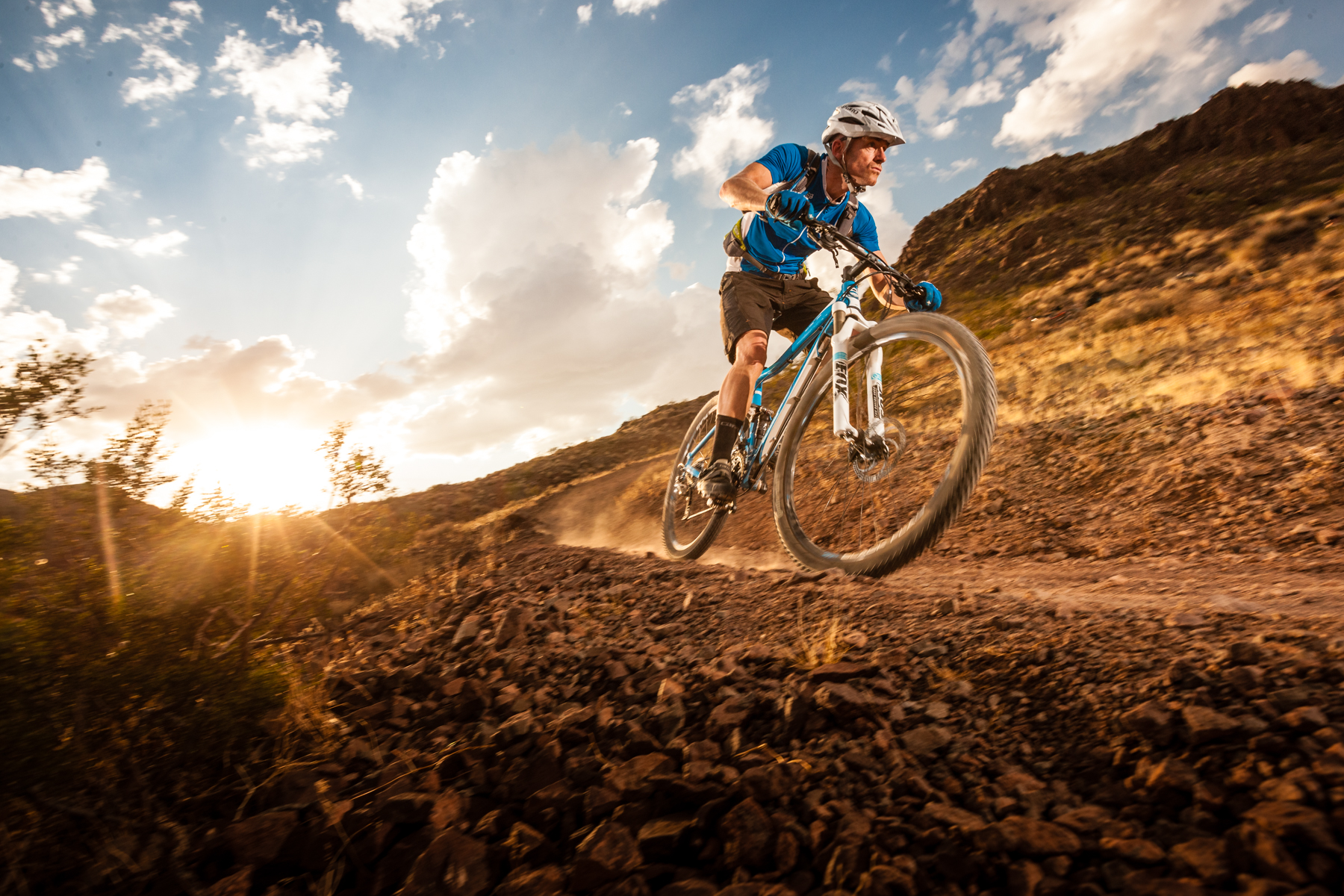
Guy Kesteven has been working on Bike Perfect since its launch in 2019. He started writing and testing for bike mags in 1996. Since then he’s written several million words about several thousand test bikes and a ridiculous amount of riding gear. He’s also penned a handful of bike-related books and he reviews MTBs over on YouTube.
Current rides: Cervelo ZFS-5, Specialized Chisel, custom Nicolai enduro tandem, Landescape/Swallow custom gravel tandem
Height: 180cm
Weight: 69kg
